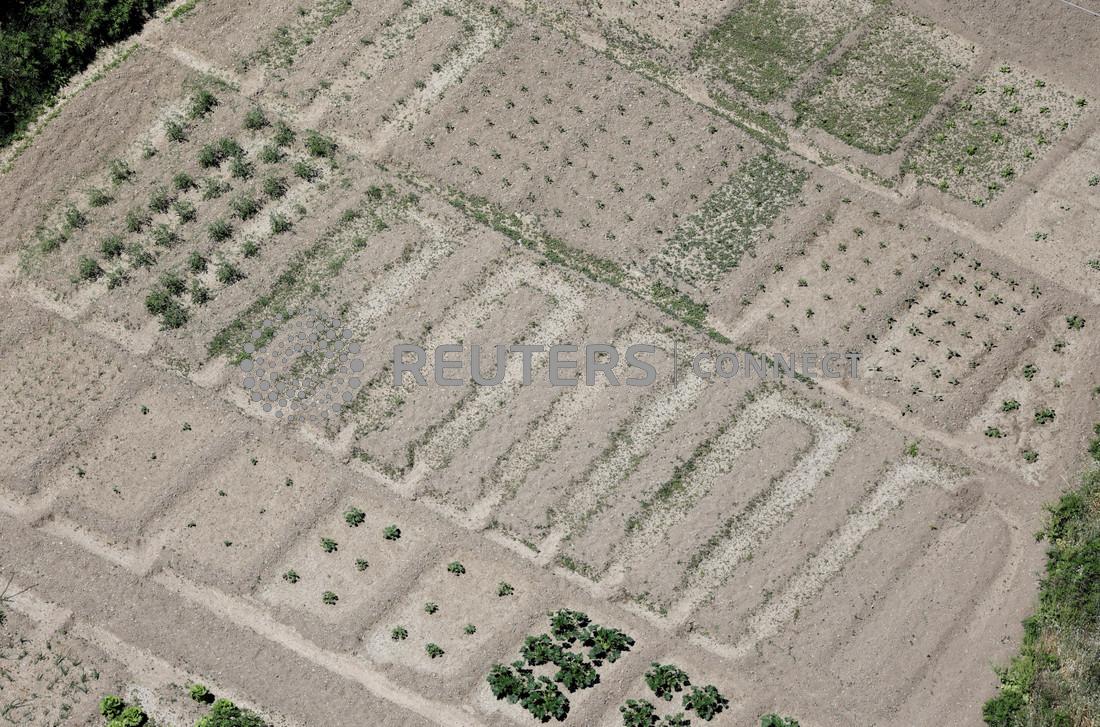MADRID (Reuters) -The Spanish government plans to spend 2.19 billion euros ($2.4 billion) on new water supplies, subsidies and direct aid to farmers to alleviate a prolonged and worsening drought they say has decimated production of rice, cereal and olives.
Environment Minister Teresa Ribera said on Thursday that her ministry would spend 1.4 billion euros to build new infrastructure such as desalination plants, double the reuse of urban water and reduce the fees and tariffs of affected farms.
She did not give a timeline on when the plants would be ready.
The agriculture ministry will provide an additional 784 million euros to support agricultural production in a country that is Europe’s primary exporter of fruit and vegetables and to alleviate the burden on farmers from the drought and rising costs.
“Spain is a country used to suffering droughts, but as a consequence of climate change we are witnessing a much higher impact, with more frequent and more intense phenomena for which we must prepare ourselves,” Ribera told reporters.
The package also includes a ban on some outdoor working during extreme heat conditions between mid-June and mid-September, as the country tries to adapt to the effects of the climate change.
Spain is suffering a long-term drought, with the driest start to a year since records began registered in the first four months of 2023.
The lack of rainfall is affecting 80% of crops and causing irreversible losses on more than 5 million hectares of rainfall-dependent cereal crops, farmers association COAG said on Thursday.
With less than half of the average rainfall in the first four months of 2023, according to official data, wheat and barley crops in most of the country have been all but chalked up as lost, COAG said.
Rice cultivation will be abandoned in Andalusia where it traditionally predominated, while the viability of fruit trees in Andalusia, Murcia, Valencia and Catalonia is seriously threatened and many farmers will be forced to uproot them.
COAG also warned that in the southern province of Jaen, with over a fifth of the world’s olive oil production on a regular year, only 20% of the normal crop will be produced this autumn.
The measures were approved just before the kick-off to the electoral campaign for regional and local votes, a run-up to general elections expected by year-end.


